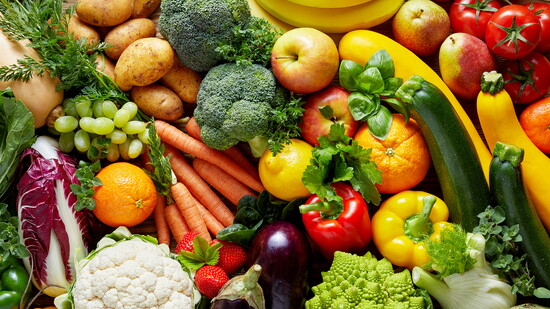At first glance, Karyn Moskowitz might seem like just another friendly face in Ocean Grove. But to hundreds of families across Monmouth County, she’s better known by a different name: The Veggie Lady.
As the coordinator of the Building a Healthier, More Equitable Community Initiative (BHEC) at Interfaith Neighbors, Moskowitz isn’t just distributing food—she’s helping build an entirely new model for how food flows through our communities. One rooted not in handouts, but in collaboration, dignity, and long-term equity.
“We’re not a food pantry,” Moskowitz explains. “We’re a coalition. We connect farmers, pantries, libraries, housing authorities, and community spaces to get fresh food where it’s needed most. It’s about filling the gaps—not duplicating what already exists.”
That focus on collaboration is what makes BHEC’s model so effective. Through an interconnected network of community-driven partnerships and host sites called the Community Food Connection, Moskowitz, along with her Food Justice Coordinator, Derek Blackwell, coordinates pop-up produce distributions across Monmouth County—from Long Branch and Asbury Park to Red Bank and other high-need areas. By contracting directly with a local farm (Fernbrook Farms in Chesterfield, NJ), and paying them a fair price, her team ensures a steady supply of seasonal produce for over 800 families throughout a 25-week season. But it’s not just what they distribute—it’s how they do it.
Rather than pre-packing items, the host sites offer a market-style setup where participants can choose the fruits and vegetables they prefer. “That small shift changes everything,” Moskowitz says. “It honors choice. It respects culture. It gives people the same agency they’d have at any other market.”
Moskowitz's passion for food justice comes from experience. Raised in Matawan by a single mom, she learned early on that healthy food doesn’t always come easy. Eating local was simply a way of life—before it became a buzzword. After college, she spent decades in Louisville, Kentucky, leading a nonprofit focused on food access and community health.
Then the pandemic hit. Moskowitz returned to New Jersey, at first temporarily—but she quickly realized this was where her work belonged.
“I landed here, and I knew I was never leaving again,” she says. “This is where the work needs to be done.”
Since then, her efforts have gone far beyond fruits and vegetables. Moskowitz also chairs the Monmouth County Food System and Access Work Group, and leads the Mayor’s Wellness Committee in Asbury Park. She’s working to eliminate the area’s four state-designated food desert zones through policy change, community partnerships, and direct intervention.
In partnership with Communities First Initiative, her team has even piloted a home delivery program for residents in affordable housing communities, recognizing that not everyone has transportation or feels comfortable accessing traditional food pantries. “We’re meeting people where they are—literally,” she says.
Moskowitz also sees food as a gateway to something bigger. Through her pop-up sites, she’s building relationships, encouraging community ownership, and changing the conversation about food access.
“Food is love,” she says. “It’s health, it’s pride, it’s rootedness. When people line up in the cold for kale and collards, you know it means something.”
The Community Food Connection’s seasonal produce distribution is supported by educational materials and recipe cards, often developed with local chefs and nutritionists. All are plant-based or culturally relevant dishes tailored to a busy family. The goal isn’t just to feed—it’s to empower.
“We’re not just dropping off boxes. We’re creating something sustainable, something that grows,” she says. “And we’re doing it together.”
The success of the program has caught the attention of neighboring communities, prompting discussions about replication, funding expansion, and deeper engagement across sectors. Still, for Moskowitz, it’s all about the people. The seniors who stop by every week. The kids who learn to love beets. The families who finally have access to fresh produce in their own neighborhood.
So yes—she’ll remind you when Jersey tomatoes are finally in season. But she’ll also remind you that how we grow, share, and value food might just be the key to building healthier, stronger, communities.
Because in Monmouth County, food isn’t just fuel. It’s connection. And thanks to leaders like Karyn Moskowitz, it’s also a movement.
How You Can Support Food Equity in Monmouth County
Here’s how you can support the Building a Healthier, More Equitable Community Initiative and Interfaith Neighbors:
Volunteer: Help with produce distribution, recipe sharing, or educational events.
Donate: Funds go toward purchasing produce from local farms and expanding access points.
Host a Pop-Up in 2026: If you’re part of a school, community center, or faith-based group, consider partnering as a site.
Connect: Reach out to Karyn Moskowitz at Interfaith Neighbors to learn how your skills or organization can support the mission. Visit interfaithneighbors.org for upcoming events, donation links, and partnership opportunities.
“Food is love, it’s health, it’s pride, it’s rootedness. When people line up in the cold for kale and collards, you know it means something.”
—Karyn Moskowitz, The Veggie Lady
